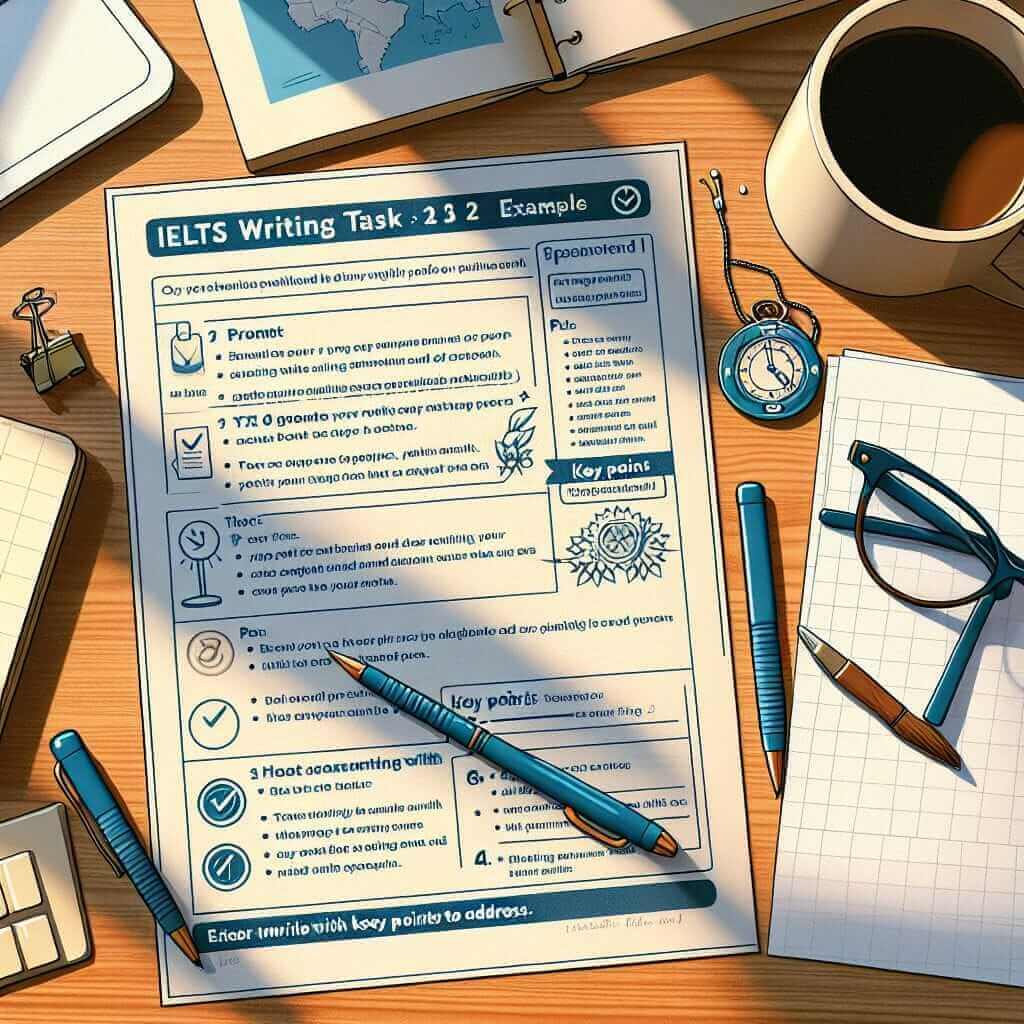The IELTS Writing test often poses a significant challenge for test-takers, even those with a strong command of English. Mastering this section requires more than just language proficiency; it demands a deep understanding of the test format, strategic writing techniques, and consistent practice. Whether you’re aiming for a band 7 or striving for a band 9, this comprehensive guide will equip you with the knowledge and tools to confidently tackle the IELTS Writing test.
Understanding the IELTS Writing Test
The IELTS Writing test assesses your ability to effectively communicate in written English across various contexts. It comprises two tasks, each requiring a distinct writing style and approach:
Task 1 (Academic): Report Writing
In Task 1 of the Academic IELTS, you’ll be presented with a visual representation of data, typically in the form of a graph, chart, table, or diagram. Your task is to analyze the presented information objectively and summarize it in a well-structured report of at least 150 words.
Task 2 (Academic & General Training): Essay Writing
Task 2 is more extended, requiring you to write a 250-word essay in response to a given point of view, argument, or problem. This task evaluates your ability to develop and support your ideas with relevant examples and evidence, maintain a clear and logical structure, and demonstrate a wide range of vocabulary and grammatical structures.
Effective Strategies for IELTS Writing
Achieving a high score in the IELTS Writing test involves a combination of strategic planning, effective writing techniques, and consistent practice. Here’s a breakdown of key strategies to implement:
1. Analyze the Prompt and Plan Your Response
Before you begin writing, carefully read and analyze the prompt, paying close attention to the keywords and instructions. Identify the type of essay or report required, the main topic, and any specific points to address. Spend a few minutes brainstorming ideas and creating a simple outline to guide your writing.
2. Structure Your Writing Logically
A well-structured piece of writing is crucial for clarity and coherence. For both tasks, follow a clear and logical structure:
Task 1 (Report Writing):
- Introduction: Paraphrase the task question and briefly describe the main trends shown in the visual data.
- Overview: Summarize the key features and significant trends, supporting your statements with figures from the data.
- Body Paragraphs: Provide a more detailed analysis of the data, grouping similar information together and highlighting significant differences or similarities.
- Conclusion (optional): Briefly restate the main trends or findings.
Task 2 (Essay Writing):
- Introduction: Introduce the topic, provide some background information, and clearly state your thesis statement.
- Body Paragraphs: Develop your arguments or points of view in separate paragraphs, providing supporting evidence and examples.
- Conclusion: Summarize your main points and restate your thesis in a clear and concise manner.
3. Use a Variety of Vocabulary and Grammatical Structures
Demonstrating a wide range of vocabulary and grammatical structures is essential for achieving a high score. Avoid repetition by using synonyms, different sentence structures, and complex grammatical constructions. However, prioritize clarity and accuracy over using overly complex language that could hinder understanding.
4. Provide Supporting Evidence and Examples
To strengthen your arguments and demonstrate your understanding of the topic, provide relevant supporting evidence and examples. These can include statistics, historical events, personal anecdotes, or hypothetical situations. Ensure that your examples are specific and directly relate to the point you are making.
5. Proofread for Errors
Before submitting your writing, carefully proofread for any grammatical, spelling, or punctuation errors. These errors can detract from the clarity and overall quality of your writing, ultimately impacting your score.

Example: Analyzing an IELTS Writing Task 2 Prompt
Prompt:
Some people believe that the government should invest more money in public transportation, while others think that it is better to invest in road infrastructure. Discuss both views and give your own opinion.
Analysis:
- Type of Essay: Opinion essay (Discuss both views and give your own opinion)
- Main Topic: Government investment in transportation
- Key Points to Address:
- Arguments for investing in public transportation
- Arguments for investing in road infrastructure
- Your own opinion and justification
Tips for Success:
- Practice Regularly: Consistent practice is key to improving your writing skills. Set aside dedicated time to practice writing tasks under timed conditions.
- Seek Feedback: Ask an experienced IELTS instructor or a native English speaker to review your writing and provide feedback.
- Read Widely: Expand your vocabulary and improve your understanding of different writing styles by reading articles, essays, and reports on various topics.
By following these guidelines and implementing the strategies outlined, you can approach the IELTS Writing test with confidence and significantly enhance your chances of achieving your desired band score.